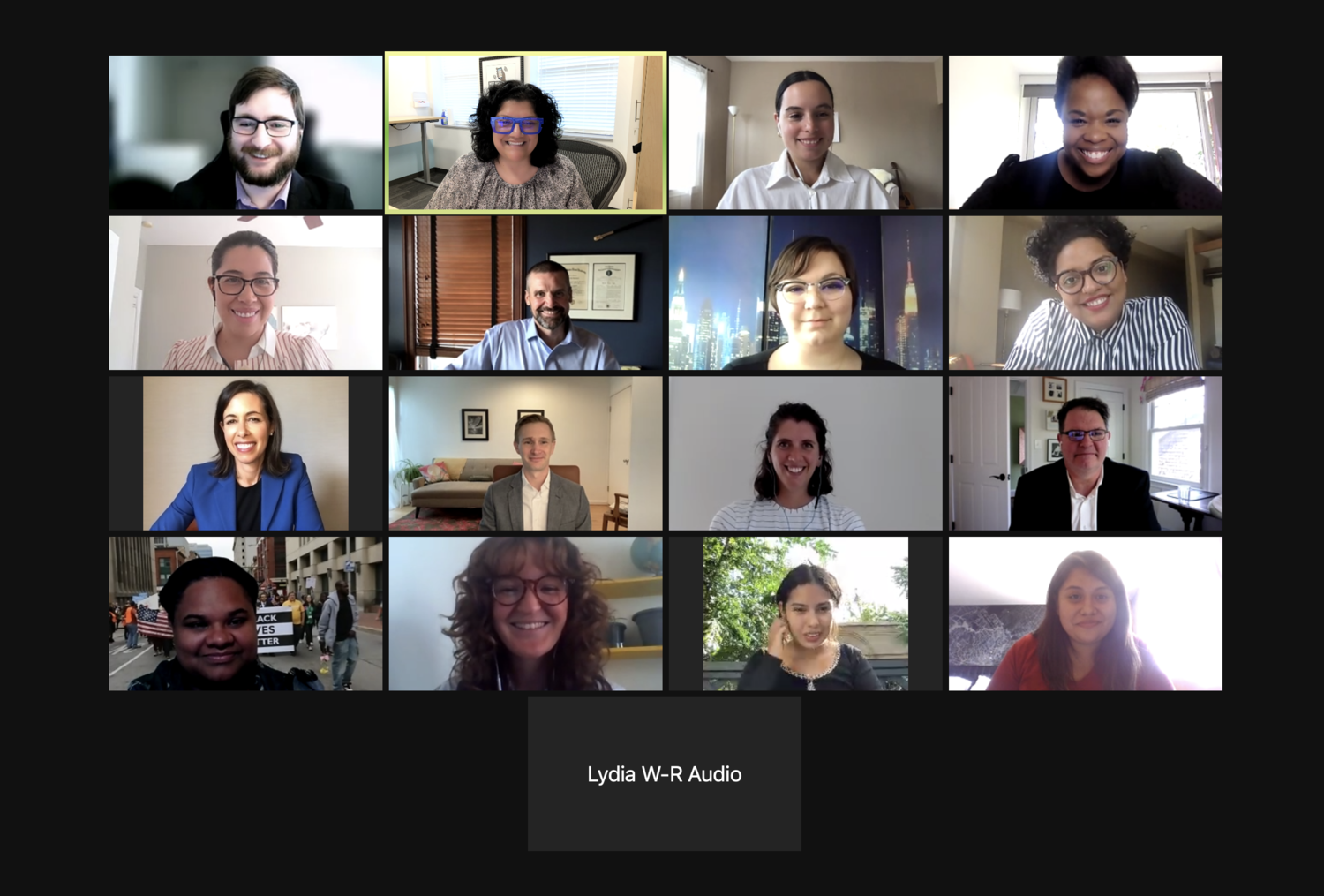Robert W. Deutsch Foundation EBB Grantees Meet with the FCC

Robert W. Deutsch Foundation EBB Grantees Meet with the FCC
In June, RWD announced our EBB Rapid Response Project. This project was based on our recognition of the importance of community based outreach, and the need for community-based organizations to serve as trusted messengers and navigators for the Emergency Broadband Benefit Program. Following the announcement, RWD made grants to three organizations who had been active throughout the COVID pandemic, and who had the ability to weave EBB outreach and support into pre-existing community programming.
Earlier this week, in partnership with another grantee, Next Century Cities, we led a Baltimore EBB Delegation to the FCC, with advocates representing Black and Latinx communities, as well as the Mayor’s Office. Although COVID-times meant a “virtual visit” instead of an in-person meeting at the FCC, it was still very powerful. In fact, we believe it was the first-ever Baltimore community-based FCC delegation!
Our delegation included the following:
Jason Hardebeck, Mayor’s Office of Broadband and Digital Equity
Catalina Rodriguez Lima, Mayor’s Office of Immigrant Affairs (MIMA)
Lydia Walther-Rodriguez, CASA
Rachel Brooks, Baltimoreans United in Leadership Development (BUILD)
EBB in Baltimore
With a population of more than half a million residents, only 40.7% of Baltimoreans have access to a broadband subscription. This means that almost 96,000 individuals citywide do not have access to a broadband subscription. Additionally, 33.3% (or 75,000) of residents do not have access to a computer. Yet, according to the FCC’s zip3 data, only 34,734 households in the Baltimore area have registered for the EBB program.
Although the EBB was designed to address these very challenges, it's clear that program availability alone is insufficient to secure enrollment. Rather, as community advocates illustrated, it will take a committed financial investment in trusted organizations and trusted messengers to ensure that EBB eligible families are able to receive this benefit.
In addition to meeting with EBB staff, our delegation met directly with the Acting Chairwoman Jessica Rosenworcel. During the meeting, community leaders were able to share powerful examples of the benefits of EBB in the lives of local Baltimoreans, while also raising critical points about the digital divide in our city and the disproportionate impact on Black and Latinx communities. Among the important points made were the following:
For many eligible residents there is an inherent distrust of programs or opportunities that seem “too good to be true”
Subsidies alone will not reverse the structural disinvestment that underlies the digital divide in our urban centers. While the EBB combats a symptom of a much larger problem, municipalities must be encouraged to consider access as critical public infrastructure and make the investments necessary to realize this goal
There is a strong element of fear when immigrant communities apply for a federal resource, and allied organizations are still struggling with the chilling effects of the Public Charge rule
Higher rates of EBB enrollment will require financial support for advocates and advocate organizations to work directly with families and individuals throughout the application and approval process
The FCC should ensure that companies who received federal funds as part of EBB comply with Language Access laws to minimize discrimination based on language
In addition to the issues raised, delegates also praised the FCC for the program with Rachel Brooks of BUILD noting:
The EBB has been essential in that it has forced a conversation among talented, radical leaders who have been creating and organizing their way around these intentional divides for the last four decades, that their digital rights are their human rights.
You can read more about the points raised by our delegation in our Ex Parte filing.
Also, thank you to Brandon Forrester and MediaJustice for their support.
